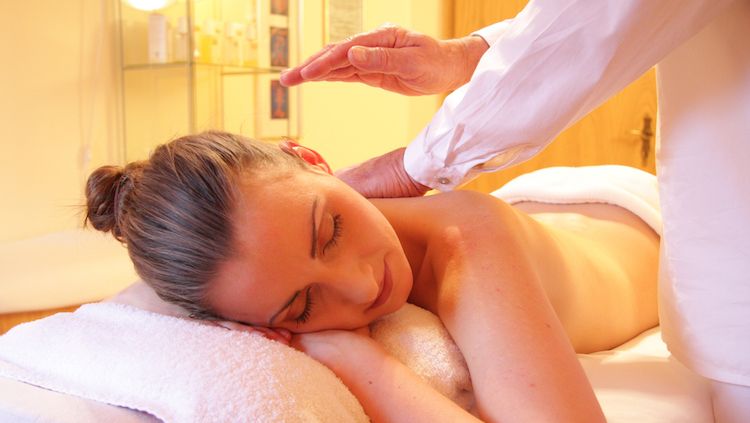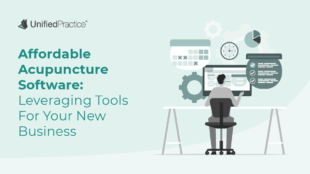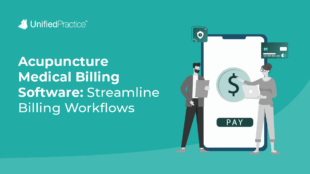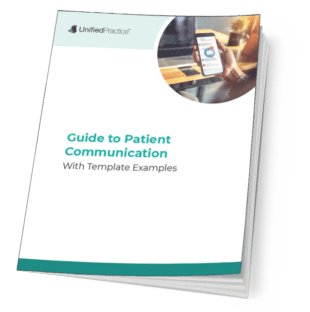When it comes to our world’s approach to health and medicine, we typically consider two separate ideologies: Western and Eastern medicine. Western medicine follows a reductionist approach, where a disease is considered separate from overall health and treatments are often isolated to certain areas or issues in the body. Eastern medicine takes a holistic view through which our health is determined by whether the body is in a balanced or unbalanced state. Moreover, Western doctors often rely on pharmaceuticals to address health issues, while Eastern medicine focuses on natural treatments like herbs, energy work, and acupuncture.
While both approaches look different, what if they are not dissimilar as it might seem? What if we don’t have to choose one over the other? If the end goal is the same — better health — how did we come up with such different approaches to healing, and is how are our perceptions changing, if at all?
Let’s look specifically at acupuncture, a popular Eastern medicine practice, and see how it fits within our Western world and approach to health and healing.
Acupuncture 101
Acupuncture derives from the belief that good health is a product of energy flowing freely along channels in our bodies called meridians. There are as many as 20 meridians in the body and each corresponds to a specific organ. Furthermore, it’s believed that illness occurs when there is a disruption in the flow of qi — patterns of energy — within these meridians.
It’s believed that applying tiny needles to more than 2,000 acupuncture points found along the meridian channels will release the qi that is stuck or blocked. In more medical terms, practitioners explain that acupuncture affects neurohormonal pathways, whereby the needle insertion stimulates a nerve that signals to the brain to release beta-endorphins, which are the body’s natural pain-killing chemicals. This stimulation also affects the part of the brain that administers serotonin, a brain chemical that can improve mood. (1) (2)
A variety of clinical studies supports and layers this theory, revealing how acupuncture bolsters the body’s nervous and endocrine systems and may decrease the inflammation associated with different diseases. (3) (4)
Acupuncture and the U.S.
Acupuncture might seem relatively new in America, but it’s been healing people for over 3,500 years — used by patients to alleviate symptoms from a myriad of illnesses from arthritis and migraines to chemotherapy side effects and depression.
The acceptance and success of acupuncture is evident and continues to grow among medical professionals in the U.S. In 1998, the National Institute of Health approved acupuncture as a medicine while acupuncture needles are now regulated with the same standards as surgical scalpels and other medical devices.
Moreover, in a 2007 National Health Interview Survey (NHIS), approximately 38 percent of adults reported using complementary and alternative medicine (such as acupuncture) in the previous 12 months while a study of 89,000 acupuncture patients treated in 2014 and 2015 found high rates of satisfaction, exceeding our national benchmarks’ average.
Best yet, certain health insurances now cover acupuncture and as of 2019, a plan has been put into place by the U.S. government to cover acupuncture for Medicare patients with chronic low back pain as a way to safely treat pain without reverting to opioids.
In general, acupuncture is no longer a “last resort” option after people have tried Western approaches to healing. For low back pain, people are going to acupuncture practitioners, chiropractors, and massage therapists before filling prescriptions for painkillers. Others are practicing yoga and meditation for anxiety and depression before seeing a psychiatrist. This is not to say that one approach is better than the other; rather, both are viable options for people with health ailments.

East Meets West: An Integrated Approach
Rather than thinking in terms of East versus West, acupuncture is showing up as a facet of integrative medicine, which takes into account the whole person, versus a disease, and emphasizes the relationship between practitioner and patient. Integrative health combines modern medicine with established healing approaches from around the world, with practitioners on both sides recognizing the numerous areas in which Eastern and Western medicine can engage in productive and collaborative work.
It makes sense that acupuncture and Western medicine can complement one another as well. In many instances, patients are looking for a scenario in which an integrative medicine like acupuncture can supplement their Western medical treatment plan.
All in all, it’s important to remember that acupuncture is not intended to replace Western medicine practices or visa versa. Rather, we’re in a place where the medical world is starting to build a bridge between the best of Western and Eastern practices to find the best passageways to better health.
Psst: If you’re a TCM practitioner interested in learning more about our integrated practice management solution, get started here.




